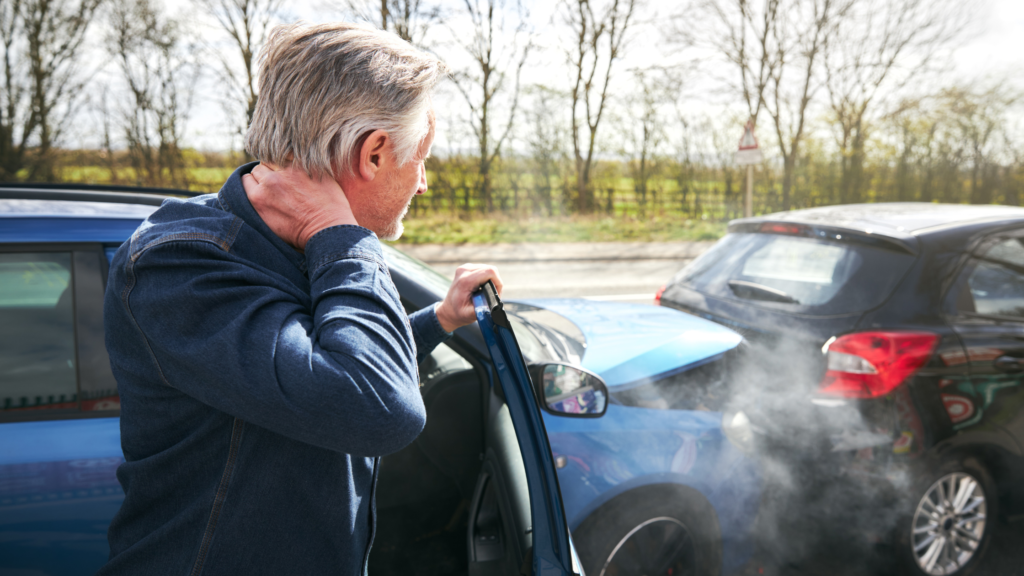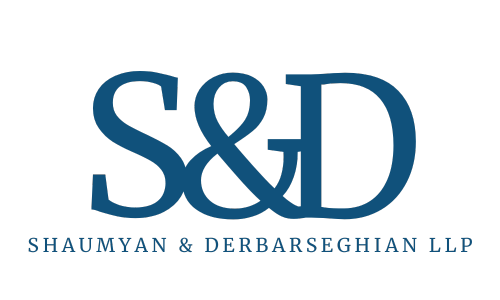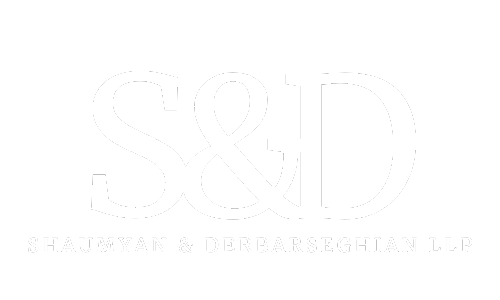
Car accidents are stressful and disorienting events. In the confusion that follows, it’s easy to make decisions that can harm your ability to recover compensation for your injuries or vehicle damage. Understanding what steps to take after an accident—and more importantly, what to avoid—can make a significant difference in the outcome of your case.
At Shaumyan & Derbarseghian, LLP, we specialize in personal injury law and help accident victims protect their rights. In this blog, we’ll cover common mistakes people make after a car accident and provide crucial advice on what you should do to protect yourself and your claim.
1. Admitting Fault: A Costly Mistake
One of the most common mistakes people make after an accident is admitting fault—either directly or indirectly. In the immediate aftermath, you may feel shaken or worried about the other driver’s well-being, but it’s important to avoid statements like “I’m sorry” or “It was my fault,” even if you believe you may be partially to blame. Admitting fault, even casually, can be used against you by insurance companies or in a legal case.
What to Do Instead:
- Stick to the facts: When speaking with police officers, other drivers, or witnesses, only provide factual information such as the time of the accident, the direction you were driving, and any observable road conditions.
- Let the investigation determine fault: The police and insurance companies will conduct an investigation to determine fault based on evidence. Even if you believe you were partially at fault, there may be other factors that contributed to the accident.
2. Failing to Seek Medical Attention: A Risky Gamble
After an accident, especially if you don’t feel immediate pain, you may be tempted to skip a visit to the doctor. However, many injuries, such as whiplash, soft tissue damage, or concussions, may not manifest symptoms right away. Failing to seek prompt medical attention could not only jeopardize your health but also harm your potential claim for compensation.
Why You Should Always See a Doctor:
- Injuries can worsen over time: Some injuries may take hours or days to become apparent. A medical professional can identify underlying issues before they become more serious.
- Documentation is key: Medical records serve as important documentation in your injury claim. Without them, it may be difficult to prove that the injuries you sustained were caused by the accident.
Even if you believe you’re unharmed, it’s always best to err on the side of caution and get evaluated by a medical professional right after the accident.
3. Not Calling the Police: Skipping the Official Report
Some accident victims assume they don’t need to call the police, especially if the damage seems minor or if both drivers agree to handle it privately. This can be a costly mistake. A police report serves as an official record of the accident and provides a crucial piece of evidence for your insurance claim or lawsuit.
Why the Police Report Matters:
- Unbiased documentation: A police officer will document the scene, interview witnesses, and record the details of the accident in an unbiased manner. This report can be essential if the other driver later disputes what happened.
- Legal requirements: In some states, it’s required by law to report any accident that results in injury or property damage. Failing to do so can result in penalties.
Always call the police after an accident, no matter how minor it may seem. The official report will be invaluable if you need to file a claim later.
4. Not Documenting the Accident Scene: A Missed Opportunity
After a car accident, emotions can run high, and it’s easy to overlook the importance of gathering evidence at the scene. Failing to document the scene can hurt your case, especially if the other driver provides a different version of events later.
What You Should Document:
- Photos: Take pictures of the vehicles, damage, road conditions, traffic signs, and any injuries. Include multiple angles to give a clear picture of the scene.
- Witnesses: If there are any witnesses, get their names and contact information. Their testimony may be critical if there’s a dispute about who was at fault.
- Notes: Write down your own account of the accident while it’s still fresh in your memory. Include details like the time, weather, and any conversations you had with the other driver.
This evidence will be helpful when filing an insurance claim or pursuing legal action.
5. Trusting the Insurance Company: A Common Pitfall
After an accident, it’s natural to assume that your insurance company will act in your best interest. Unfortunately, insurance companies often prioritize minimizing payouts over helping you recover full compensation. They may pressure you into accepting a low settlement offer or even deny your claim.
How to Protect Yourself:
- Don’t accept the first offer: Insurance companies often make low initial offers in the hopes that you’ll accept without negotiation. Before agreeing to any settlement, consult with an attorney to ensure you’re receiving fair compensation.
- Be cautious when speaking with insurance adjusters: Anything you say can be used against you. Stick to the facts and avoid speculating about the cause of the accident or the extent of your injuries until you have all the information.
6. Settling Too Quickly: Rushing Can Cost You
In the aftermath of a car accident, especially if you’re dealing with medical bills or lost wages, it can be tempting to settle your claim quickly and move on. However, settling too soon can result in accepting far less compensation than you deserve, especially if your injuries worsen or you have future medical expenses.
Why Patience is Important:
- Full recovery takes time: Some injuries require long-term treatment or rehabilitation. Settling before you know the full extent of your injuries can prevent you from receiving compensation for future medical costs.
- Legal timelines: While you should act quickly to protect your claim, you also have a certain amount of time to file a lawsuit (known as the statute of limitations). Consulting with an attorney early can help you understand the right timing for settlement.
Always seek legal advice before accepting a settlement offer, especially if you’re still undergoing medical treatment.
7. Not Consulting with an Attorney: Don’t Go It Alone
Navigating the legal and insurance systems after a car accident can be overwhelming, and many people make the mistake of not consulting an attorney early in the process. Without legal guidance, you may not be aware of your full rights or how much compensation you’re entitled to.
Why You Need Legal Help:
- Maximizing your compensation: An attorney can help you understand the true value of your claim, including compensation for medical bills, lost wages, and pain and suffering.
- Navigating complex claims: Car accident claims can involve multiple parties, including insurance companies, medical providers, and even third-party drivers. An experienced attorney will know how to handle these complexities.
Conclusion: Protect Your Rights After a Car Accident with Shaumyan & Derbarseghian, LLP
After a car accident, it’s easy to make mistakes that could hurt your chances of recovering full compensation. By avoiding these common pitfalls—such as admitting fault, skipping medical care, or rushing to settle—you can protect your health, your claim, and your financial future.
At Shaumyan & Derbarseghian, LLP, we specialize in helping accident victims navigate the legal process and maximize their compensation. If you’ve been injured in a car accident, don’t hesitate to reach out for a free consultation. We’ll review your case, guide you through the next steps, and ensure that your rights are protected.
Contact us today to get the legal support you need after an accident.
Helpful Links
- National Highway Traffic Safety Administration (NHTSA) – What to Do After a Car Crash
This guide offers a step-by-step outline of what to do after a car accident. Visit NHTSA’s guide here. - California Department of Motor Vehicles (DMV) – Accident Reporting Requirements. In California, it’s mandatory to report accidents under certain conditions. Visit California DMV’s accident reporting page here.

